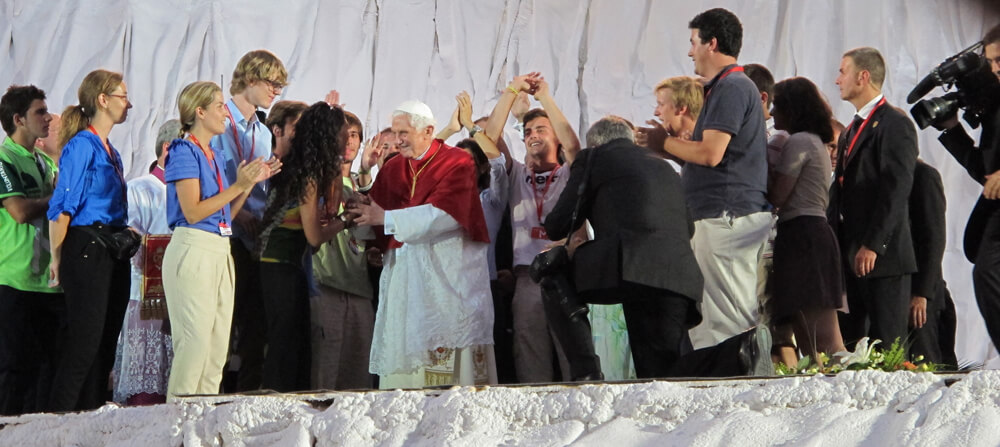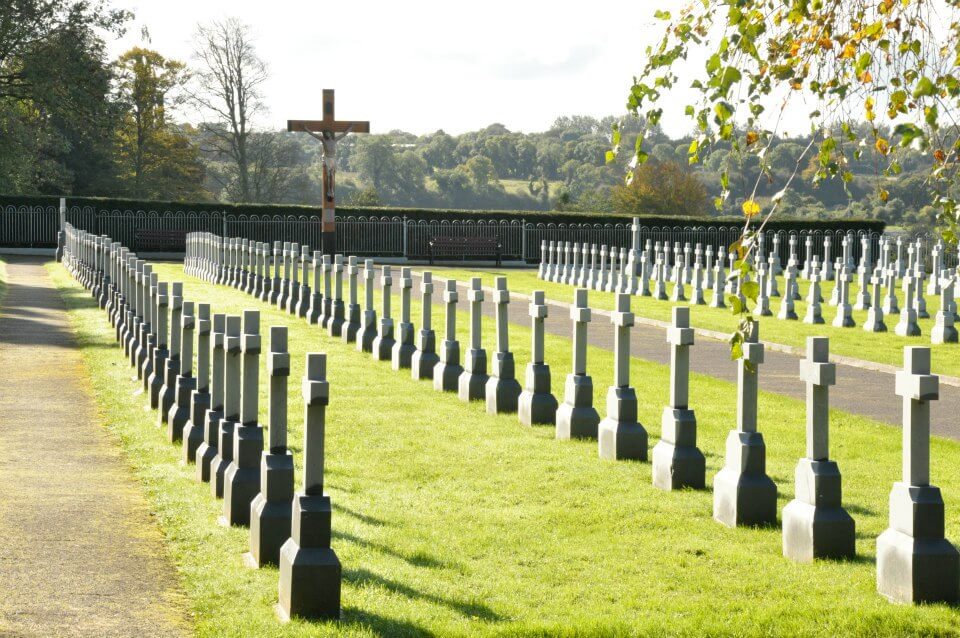
Confession during a youth pilgrimage, Chile
My aunt in her last moments was asking for the Sacrament of Reconciliation. Since it was Holy Week we weren’t able to get a priest. She died on Holy Thursday and I felt so sorry for her not receiving Holy Communion. Father, will her soul be at peace with the Lord? Were her sins forgiven?
Part of the background to this, I have learned, is that your aunt had just retired and had moved from the island where she had been living for many years to a town on another island and became gravely ill within a number of days. She was taken first to a local hospital for immediate treatment but then taken to a larger city hospital that doesn’t have a Catholic chaplain. And if the Chrism Mass in the cathedral of a diocese takes place on Holy Thursday morning, as I know it did in this case, it makes it difficult for a priest to be available for the sick, since he has to celebrate the Mass of the Lord’s Supper that afternoon in his parish, possibly in two locations.
Normally, if the sick person is fully conscious, the priest administers three sacraments: Confession (Sacrament of Reconciliation), the Anointing of the Sick and Holy Communion. If the person is dying the latter is called ‘Viaticum’, which means ‘food for the (final) journey’.
Your aunt clearly had a desire to confess her sins before dying. That means that she was repentant. And the family tried to get a priest. I believe that it is impossible for God not to respond to a person’s desire for reconciliation, since the very desire is a grace from God. And though Jesus gave the Seven Sacraments to the Church as a gift for all of us, and the Sacrament of Reconciliation as the normal way in which we ask for and receive his forgiveness, God is not limited by human circumstances that make the normal impossible. Your aunt desired to die fully reconciled with God. And only God can read what is in the depths of our heart and only God can fully respond to that.
The Catechism of the Catholic Church, 1451-1453, speaks of contrition: Among the penitent's acts contrition occupies first place. Contrition is "sorrow of the soul and detestation for the sin committed, together with the resolution not to sin again." You will find more here.
No 1457 reminds us: According to the Church's command, "after having attained the age of discretion, each of the faithful is bound by an obligation faithfully to confess serious sins at least once a year."
We need to confess our sins frequently, even if we haven’t committed any mortal sins, which cut off our relationship with God. If we willfully persist in that state we are cutting ourselves off from God’s love for all eternity.
In his encyclical letter Spe Salvi Pope Benedict XVI writes beautifully about our relationship, in God, with our loved ones who have gone ahead. In No 46 he says, Paul begins by saying that Christian life is built upon a common foundation: Jesus Christ. This foundation endures. If we have stood firm on this foundation and built our life upon it, we know that it cannot be taken away from us even in death.

Pope Benedict at World Youth Day, Madrid, 2011 [Wikipedia]
In No 48 Benedict speaks about the interconnectedness of the living and the dead and how our prayers help those who have gone ahead of us if they go through the purification of purgatory. The belief that love can reach into the afterlife, that reciprocal giving and receiving is possible, in which our affection for one another continues beyond the limits of death—this has been a fundamental conviction of Christianity throughout the ages and it remains a source of comfort today. Who would not feel the need to convey to their departed loved ones a sign of kindness, a gesture of gratitude or even a request for pardon? Now a further question arises: if “Purgatory” is simply purification through fire in the encounter with the Lord, Judge and Savior, how can a third person intervene, even if he or she is particularly close to the other? When we ask such a question, we should recall that no man is an island, entire of itself. Our lives are involved with one another, through innumerable interactions they are linked together. No one lives alone. No one sins alone. No one is saved alone. The lives of others continually spill over into mine: in what I think, say, do and achieve. And conversely, my life spills over into that of others: for better and for worse. So my prayer for another is not something extraneous to that person, something external, not even after death. In the interconnectedness of Being, my gratitude to the other—my prayer for him—can play a small part in his purification.
Here in the Philippines we have strong tradition of praying for the dead, both immediately after the death (or in some places after the burial) with the traditional novena led by a lay person, at the time of All Saints and All Souls and on anniversaries, in particular. That is very much in line with what Pope Benedict is saying. The Funeral Mass (not ‘Mass of the Resurrection’ as it is often wrongly called) is offered for the repose of the soul of the deceased. The Funeral Mass should never be treated as ‘A Celebration of the Life of N’, as it so often is now. That is to deny the deceased the charity of our prayers.
The Communion Antiphon in the Funeral Mass During Easter Time reflects Spe Salvi in No 46:
I am the Resurrection and the Life, says the Lord.
Whoever believes in me, even though he dies, will live,
And everyone who lives and believes in me
Will not die for ever, alleluia. (John 11:25-26).
Pray for the eternal rest of the soul of your aunt, who sought God’s forgiveness before her death, in the hope that the words of Jesus himself offer.

St Columban’s Cemetery, Ireland
Collect from Funeral Mass during Easter Time
Listen kindly to our prayers, O Lord:
as our faith in your Son,
raised from the dead, is deepened,
may our hope of resurrection for your departed servant N.
also find new strength.
Through our Lord Jesus Christ, your Son,
who lives and reigns with you in the unity of the Holy Spirit,
one God, for ever and ever.
+++
Pope Benedict quotes the opening lines of a poem by John Donne (1572 – 1631): No man is an island, entire of itself. The poet, among other things, reminds us in the last lines that each death is a reminder to us of our own and that we should always be prepared for it: And therefore never send to know for whom the bell tolls; it tolls for thee.
No Man is an Island
No man is an island entire of itself; every man
is a piece of the continent, a part of the main;
if a clod be washed away by the sea, Europe
is the less, as well as if a promontory were, as
well as any manner of thy friends or of thine
own were; any man's death diminishes me,
because I am involved in mankind.
And therefore never send to know for whom
the bell tolls; it tolls for thee.

